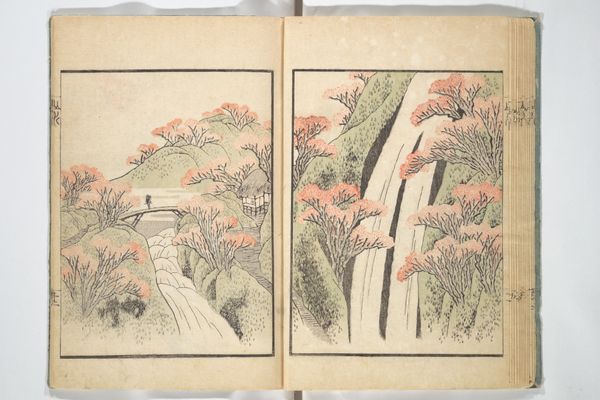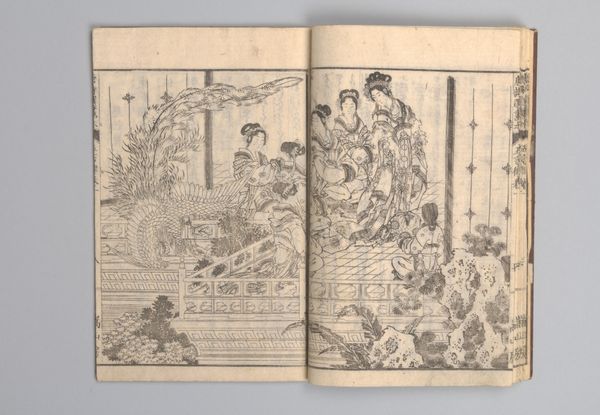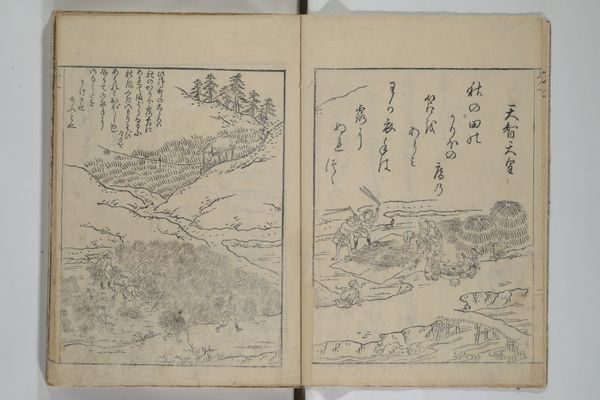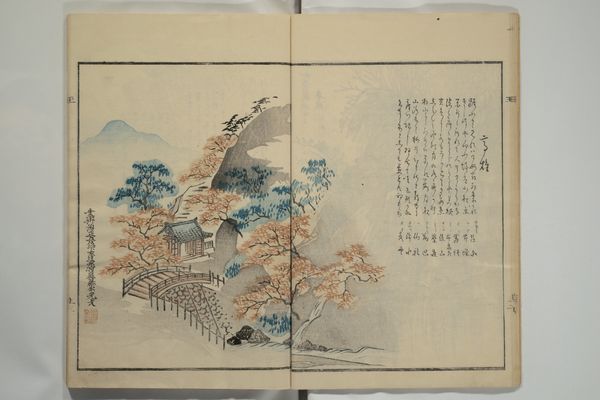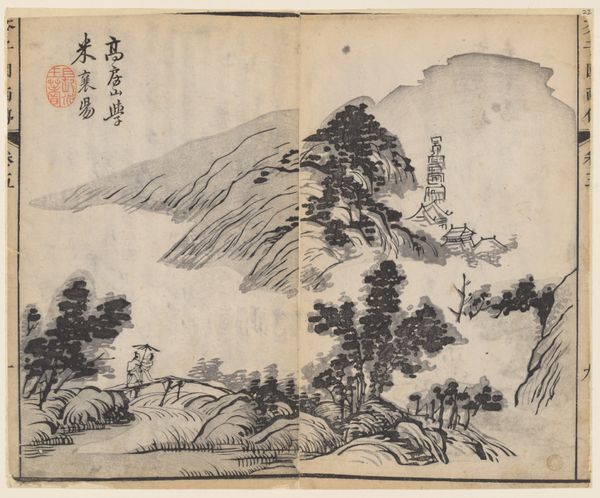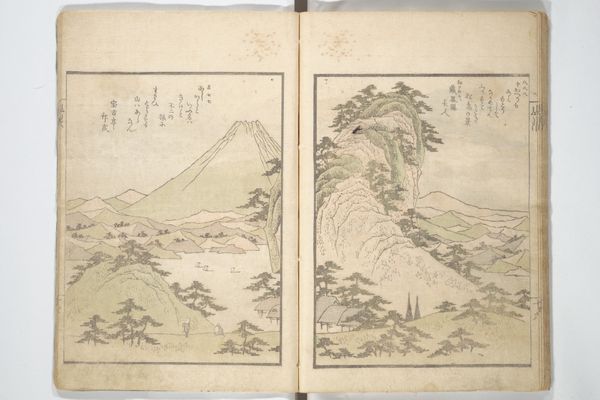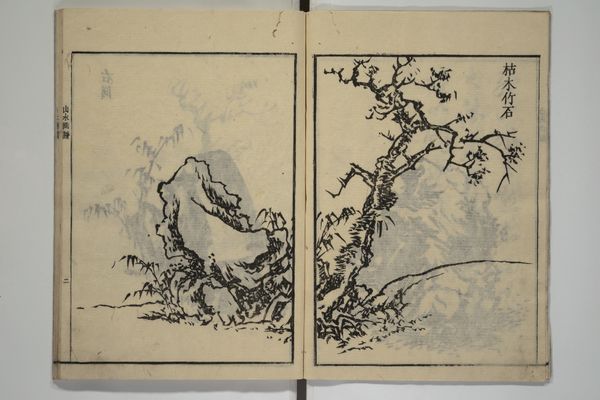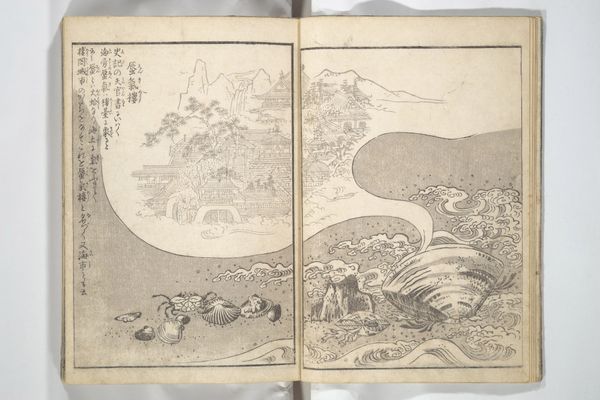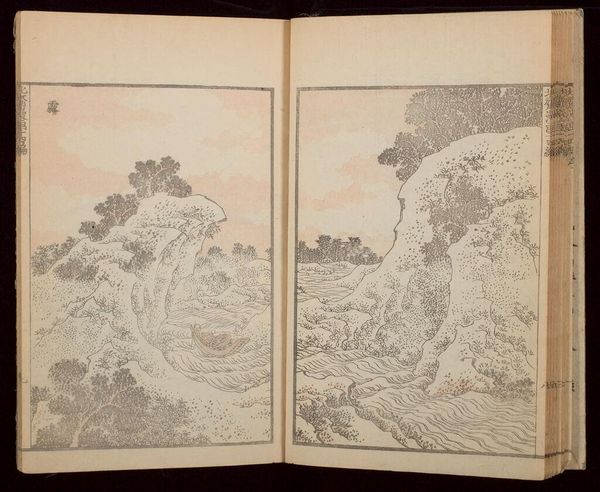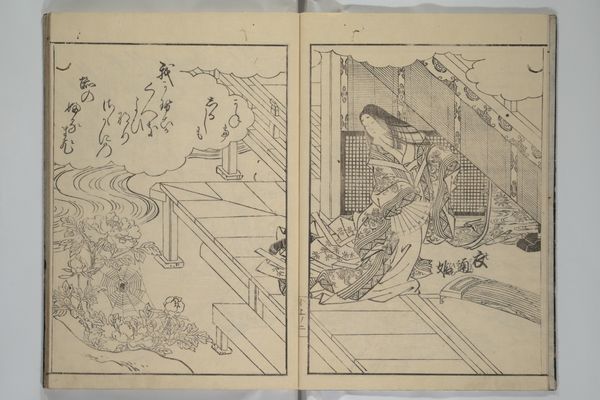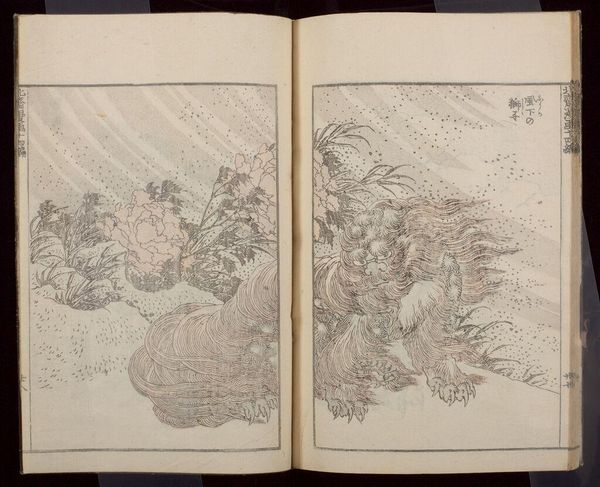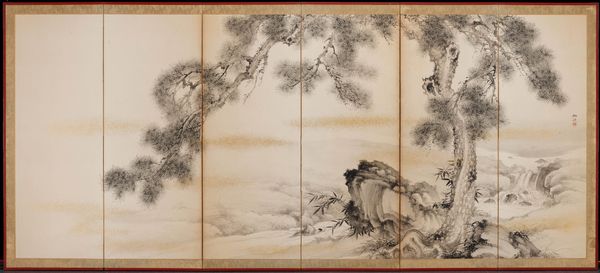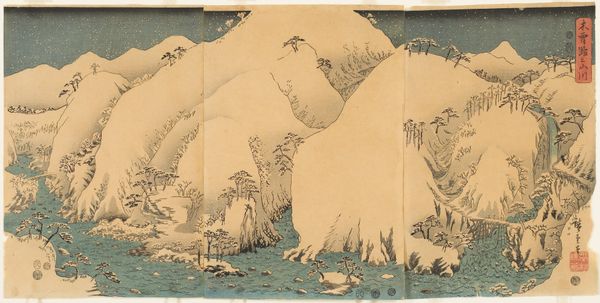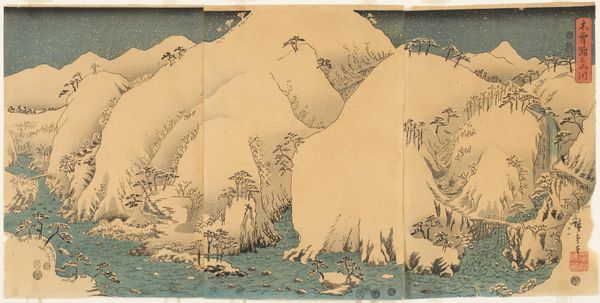![One Hundred Views of Mount Fuji (Fugaku hyakkei 富嶽百景): [volume 3] by Katsushika Hokusai](/_next/image?url=https%3A%2F%2Fd2w8kbdekdi1gv.cloudfront.net%2FeyJidWNrZXQiOiAiYXJ0ZXJhLWltYWdlcy1idWNrZXQiLCAia2V5IjogImFydHdvcmtzL2ExYmJhOWEzLWViYTQtNDlmMS1iNzA0LTNjYWI5NGM2NGE3ZC9hMWJiYTlhMy1lYmE0LTQ5ZjEtYjcwNC0zY2FiOTRjNjRhN2RfZnVsbC5qcGciLCAiZWRpdHMiOiB7InJlc2l6ZSI6IHsid2lkdGgiOiAxOTIwLCAiaGVpZ2h0IjogMTkyMCwgImZpdCI6ICJpbnNpZGUifX19&w=3840&q=75)
One Hundred Views of Mount Fuji (Fugaku hyakkei 富嶽百景): [volume 3] 1839 - 1859
0:00
0:00
print, woodblock-print
# print
#
book
#
asian-art
#
landscape
#
ukiyo-e
#
figuration
#
woodblock-print
#
abstraction
Dimensions: each: 8 15/16 × 6 1/4 in. (22.7 × 15.8 cm)
Copyright: Public Domain
Here we see a page from Hokusai's "One Hundred Views of Mount Fuji," rendered in ink. Fuji, a sacred peak, looms in the background, partially veiled by mist, its symbolism deeply rooted in Japanese culture, representing spiritual power, awe, and the sublime beauty of nature. Note the figures ascending the rocky path; this motif of climbing a mountain is universal across cultures, symbolizing personal growth and spiritual enlightenment. We can find echoes of this motif in the ancient Greek myth of Mount Olympus. It is not merely about physical elevation but also about a deep-seated human desire to overcome challenges and reach higher states of consciousness. This image touches upon something primal—the collective memory of striving, of seeking, which is why it continues to resonate with viewers, engaging them on a profound, subconscious level. The mountain, the mist, the climbers—they are not just elements in a landscape but potent symbols in a non-linear progression of cultural and psychological motifs.
Comments
No comments
Be the first to comment and join the conversation on the ultimate creative platform.
